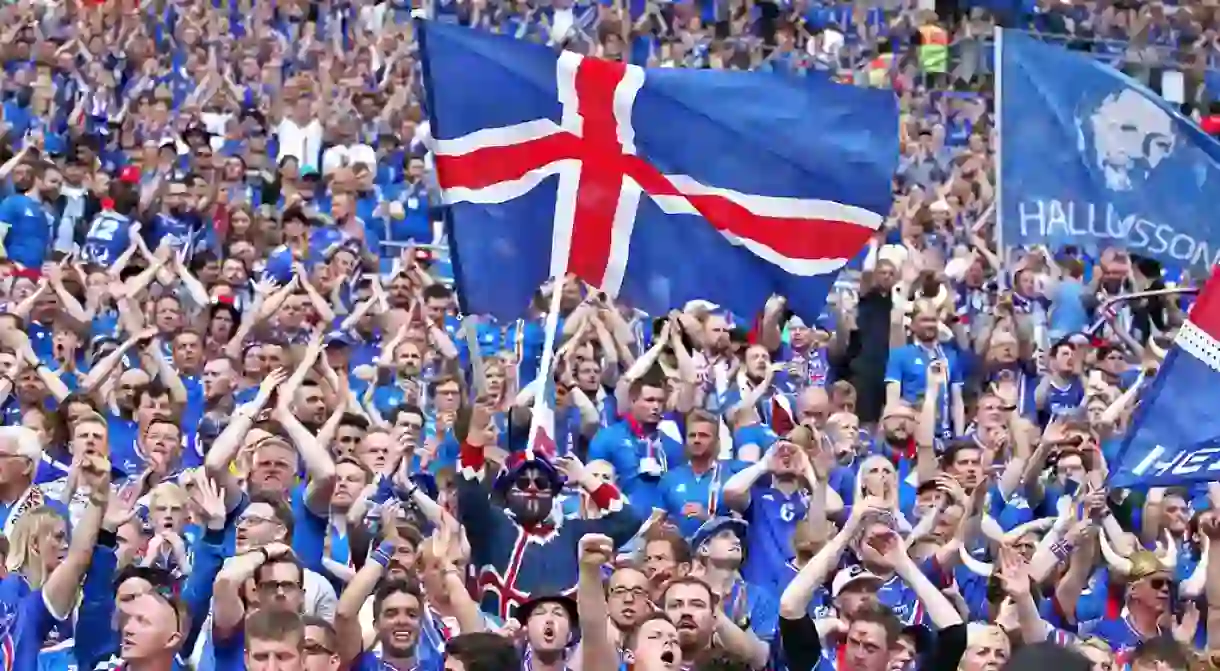How to Support Iceland's Football Team Like an Icelander

Learning how Iceland and its people have lived, the recent success of its national football team should come as no great surprise. From diet and training to work and play, there are plenty of lessons the rest of the world can take from such a remarkable country.
Toughen up
In the TV series Game of Thrones, most of the scenes filmed in the brutal winter, with various characters shivering in the wind and snow, are shot in Iceland. Speaking to Culture Trip, Siggi Anton, a photographer and local guide based in Reykjavík, says: ‘In Iceland, you are always north of the Wall.’

In a country where the average temperature is 3°C or less for six months of the year and regularly sees winds of up to 15mph, Icelanders are battled hardened against the elements. According to Aron Gunnarsson, the captain of the men’s national team: ‘We know that as Iceland players we have a very special team spirit that stems from our Icelandic history. There are many uniquely Icelandic experiences and traditions that make us the team we are today.’
It’s the country’s nature that shapes this character, and it’s not uncommon for most Icelanders to work two jobs. Lea Gestsdóttir Gayet, a teacher who also works in public relations, says: ‘My grandfather always said, “If you don’t work at least 50 hours a week, then it’s you that are weak. ”’ Even the country’s goalkeeper, Hannes Þór Halldórsson, combines his professional football career with film-making.
Train hard
Those elements have helped sculpt a nation ready to pull its weight. Witnessing Iceland’s environment first hand takes some getting used to. Its glaciers, volcanoes and rolling terrain mark it out as totally unique. It has also created a society that is utterly in tune with the nature that surrounds it. Being outside – running, hiking and climbing – benefits fitness, all-round health and, not to mention, strength.

Iceland, make no mistake, is strongman country. Only the US has won more medals at the World’s Strongest Man competition since in began in 1977, with Icelanders historically competing in its own aflraunir (‘tests of strength’) for hundreds of years. Lifting a rock of 155kg or heavier, before walking and placing it on a waist-height platform ensures you earn a status of fullsterkur (‘full strength’).
Clap along
Go to any Iceland game and you’ll hear the Tólfan, Iceland’s diehard group of supporters who brought the ‘thunderclap’ to the world at Euro 2016. The group, whose name roughly translates as ‘Twelfth Man’, dominated the tournament in France, with the clapping building momentum and taking hold over every group of supporters that witnessed it.
When Iceland came home, not long after sending England packing, over 10,000 fans packed into Arnarhóll park to greet the players, bringing the thunder to an otherwise sleepy square. Gestsdóttir Gayet explains: ‘The beauty is not in the blast of each clap; it’s in its silence. There is something very special about thousands of people being still and silent all at the same time.’
Relax and recharge
Part of Iceland’s unique natural landscape is its geothermal activity and the warmth it generates from the ground below. Anton says: ‘Because in Iceland it can be so cold, the water is our sun.’ Despite temperatures dropping well below freezing during the colder months, the water running from the volcanoes and mountains, under and across the terrain, always remains at a constant 3°C – perfect for drinking.
In addition, no Icelandic city or town is complete without its geothermal pools, which are essentially natural hot tubs carved into the rocks, where locals go to wind down and recharge. Warm pools, saunas and steam rooms, all powered and heated by nothing more than the ground on which they sit. It’s part of the reason locals manage to balance a laid-back attitude to getting things sorted with their aforementioned fierce work ethic.
Midfielder Birkir Bjarnason says: ‘In the run-up to a big tournament, it’s both the time on the pitch and how you spend it off it that counts; the pools are my favourite places to relax and unwind in Iceland.’

Eat right
Fresh fish high in protein and omega-3 acids – think mackerel, herring, trout and sardines – benefit the heart, as well as helping reduce blood pressure. Fresh water comes directly from the country’s volcanic terrain, which means it’s high in minerals and better than any bottled water that you find in the shops.

Get into skyr – the absolute staple of any Icelander’s diet. Similar to Greek yoghurt (although less tangy and slightly thicker in consistency), skyr is made from skimmed milk. It provides a similar amount of calories and protein to its Greek equivalent but with less fat and less sugar.
It all sounds fairly idyllic (which isn’t far from the truth) – a nation full of strong, fit, healthy people who never shirk work but always find time to relax and recuperate. However, it is important to understand the effort that has gone into moulding this lifestyle. Very few could battle freezing temperatures, harsh winds and volcanic eruptions on an isolated island. Those who did have created something very special.
Icelandair launches Team Iceland Stopover, a series of unique 90-minute football inspired experiences for passengers created by the national team players. www.icelandair.com/Team-Iceland-Stopover













